
Fisherman's Market
Coastal fish markets are usually only open for a short period of time. Fishing village markets are often bustling, bustling and fleeting. Perhaps that is why in folk songs about love, the space of the fish market and the matter of choosing fresh products become interesting metaphors for the story of "picky fish" in the short youth of a person's life:
“The market is crowded, you say the red snapper is bland/ The market is over, you also say the silver shrimp is delicious/ The market is crowded, you say the red snapper is bland/ The market is over, you have to buy the silver shrimp/ The market is crowded, you say the snakehead fish is bland/ The market is over, you also buy the snakehead fish”.
The folk song has many versions, but all are built according to the contrasting structure between "busy market" and "late market". Perhaps, to recreate the brevity of youth, of human life, thereby criticizing the subjective attitude, hesitation that leads to ignoring the best choices. Because, "market" is also "life", going to the market as well as engaging in life, both require a sober and tolerant attitude, both choosing and understanding, tolerance to hope for the complete satisfaction of seller and buyer.

Peaceful and prosperous space
Different from the ambiguous nature of folk songs, coastal fishing villages and fishing village markets entered medieval poetry as a realistic space, a measure of the prosperity and peace of a countryside.
King Tran Anh Tong returned from conquering Champa, stopped at Phuc Thanh seaport (present-day Ninh Binh ) at dawn, and recorded the peaceful, poetic scene of the coastal fishing village through the poem "Chinh Chiem Thanh hoan chu bac Phuc Thanh cang" (Returning from conquering Champa, the boat docked at Phuc Thanh seaport).
The poem depicts the scene of a simple but poetic fishing village, evoking the deep thoughts of a soldier returning from war. Having just experienced war, standing before the peaceful scene of the fishing village at the head of the waves, people's hearts seem to warm up, temporarily forgetting the images of war:
“The brocade boat on the way home is tied with wooden clogs/ The morning dew is heavy and wet on the canopy/ The moon has just appeared on the pine trees in the mountain hamlet/ The red wind has passed in the fishing village/ Thousands of flags are flying, the sea is bright/ Five watches of trumpets and drums, the sky is shining/ By the window, the heart of the river and sea suddenly feels warm/ The curtains are no longer filled with the dream of flowers” (Translation by Pham Tu Chau).
If the fishing village space in the above poem is depicted with many poetic images, then in "Bao Kinh Canh Gioi" - poem 43, Nguyen Trai recreates the sound of the fish market mixed with the chirping of cicadas to create the vitality of the picture of rural life in summer:
“Bustling fish market in the fishing village/The cicadas chirp in the sunset tower/Maybe Ngu plays the lute once/People are rich and prosperous everywhere”.
Medieval poetry often evokes more than describes, so by simply using inversion and emphasizing the "bustling" sound of the fishing village fish market, Nguyen Trai revived the bustling atmosphere on the wharf and under the boats, buyers and sellers exchanging and bargaining, stirring up the peaceful countryside.
Nguyen Trai had experienced twenty years of hardships and hardships in the resistance war against the Ming invaders, witnessing the suffering of the people against foreign invaders. Therefore, for him, the bustling sound of the afternoon market in the fishing village, though simple, aroused deep emotions because that peace had to be exchanged for blood and bones. The bustling sound of the rural market also aroused in him the dream of having King Ngu Thuan's lute to play the song of the South Wind to pray for favorable weather and bountiful crops.

"Where is the sound of the distant village market in the afternoon?"
The simple yet warm sound of the afternoon market in “Quoc am thi tap” (Nguyen Trai) perhaps became Huy Can’s nostalgic longing in “Trang giang” of the New Poetry period: “Where is the sound of the distant village market in the afternoon?”.
When mentioning the New Poetry movement, we cannot ignore the image of a fishing village on the coast of Quang Ngai that has been deeply imprinted in the souls of many generations of readers: "The next day, the noise at the dock/The whole village bustled to welcome the boat back (Excerpt from Homeland, Te Hanh).
In the “school” of rural poetry of the New Poetry movement, Nguyen Binh, Anh Tho, and Doan Van Cu separated into a separate branch because of the images and poetic style imbued with the Northern countryside. Only Te Hanh “stands alone” with the image of the Central coastal countryside filled with the passionate flavor of the sea.
Te Hanh's poetry is simple but always moves readers to tears because of the abundant sounds, images, and smells of memories of their homeland. Only those who live anxiously waiting before the sea can fully understand the harshness of the fishing profession: "Foreheads and faces filled with bitter sweat / For many lifetimes buried in the cold, dark bottom" (Before the Sea, Vu Quan Phuong). In that challenging conquest of the ocean, the young men of the fishing village are "sculpted" by Te Hanh as thickly as the statues of an Odyssey: "Fishermen have dark, sunburnt skin / Their whole bodies breathe the scent of the distant sea".
Those fishing villages along the Central Coast are not only intact in Te Hanh's soul but also vividly revived in the memory of poet Thu Bon during the anti-American resistance war: "The silvery fish baskets/The nimble feet run quickly/The quiet shore, I sing loudly/The rising tide sweeps the bamboo boat/The day I left, I promised you I would come back/The sea salt will always be salty, my dear/Remember me, remember the boat stirring the waves/A small, fragile sail on the horizon" (Excerpt from the epic poem The Song of the Chơ-rao Bird, Thu Bon).
Although set in the majestic Central Highlands, with its vast sunshine and wind, the epic poem “The Song of the Chơ-rao Bird” by Thu Bon has expanded the dimension of the country with the space of immense nostalgia. In the dream of a soldier shackled in an American prison cell, there is the image of a coastal countryside full of shrimp and fish and the salty love of a girl “with a soul of the sea”.
Looking through the image of the fishing village fish market in Vietnamese poetry, we see that the fishing village space is not only a familiar setting that creates the Vietnamese soul. In that space, there are many thoughts and wishes of people for a peaceful, prosperous life, associated with the desire to conquer heroic and romantic nature.
In the midst of the whirlwind of urbanization, we hope that the sound of the "fisherman's village fish market" will always be bustling to keep the national life a fulcrum to remind us of our roots: "The sea gives us fish like a mother's heart/ Nurturing our lives since the beginning of time" (Huy Can).
Source







![[Photo] Hanoi morning of October 1: Prolonged flooding, people wade to work](https://vphoto.vietnam.vn/thumb/1200x675/vietnam/resource/IMAGE/2025/10/1/189be28938e3493fa26b2938efa2059e)


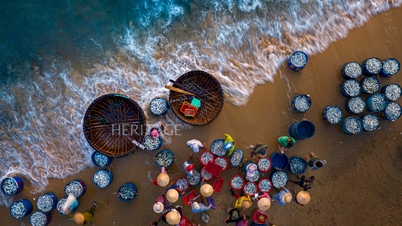
![[Photo] Peaceful Ninh Van fishing village](https://vphoto.vietnam.vn/thumb/402x226/vietnam/resource/IMAGE/2025/9/6/ec6d63f81dee4b52a765af858cebc9cf)

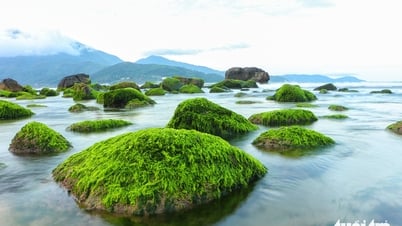

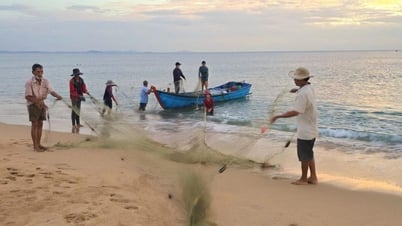

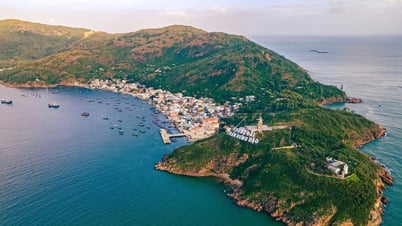

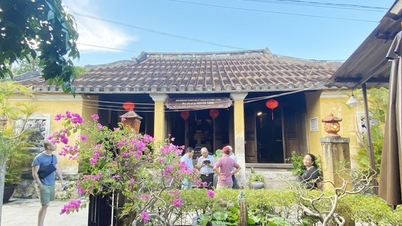

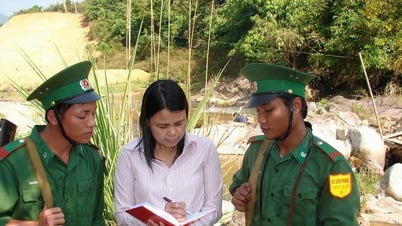
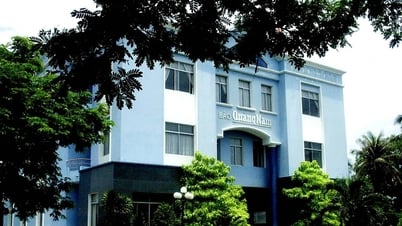








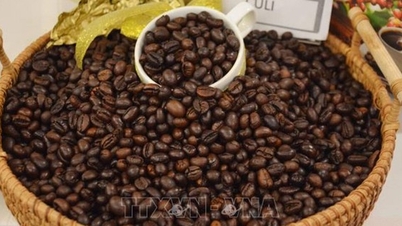
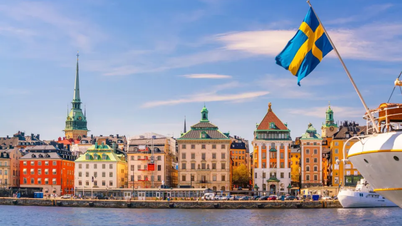
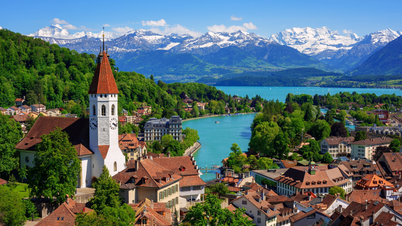


![[Photo] President Luong Cuong receives President of the Cuban National Assembly Esteban Lazo Hernandez](https://vphoto.vietnam.vn/thumb/1200x675/vietnam/resource/IMAGE/2025/9/30/4d38932911c24f6ea1936252bd5427fa)
![[Photo] Panorama of the cable-stayed bridge, the final bottleneck of the Ben Luc-Long Thanh expressway](https://vphoto.vietnam.vn/thumb/1200x675/vietnam/resource/IMAGE/2025/9/30/391fdf21025541d6b2f092e49a17243f)






















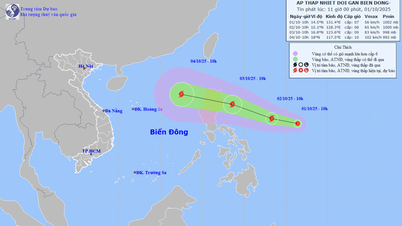
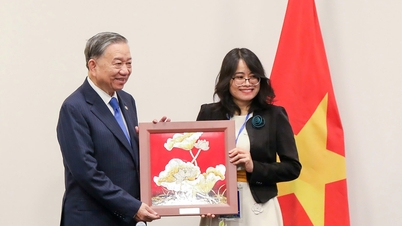

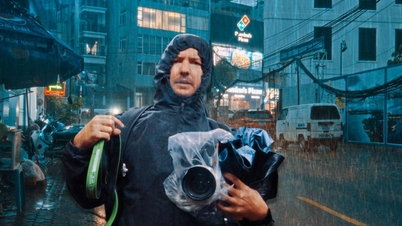











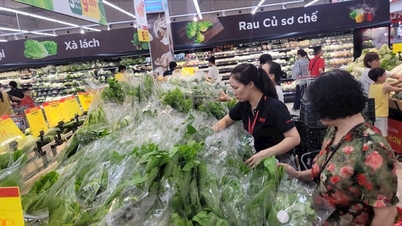

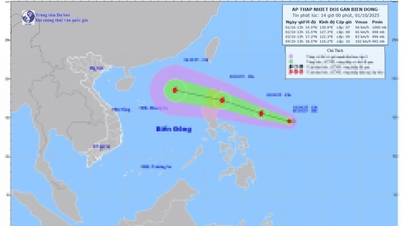















Comment (0)